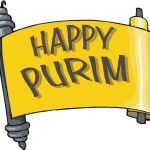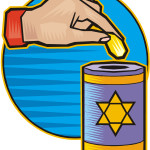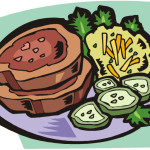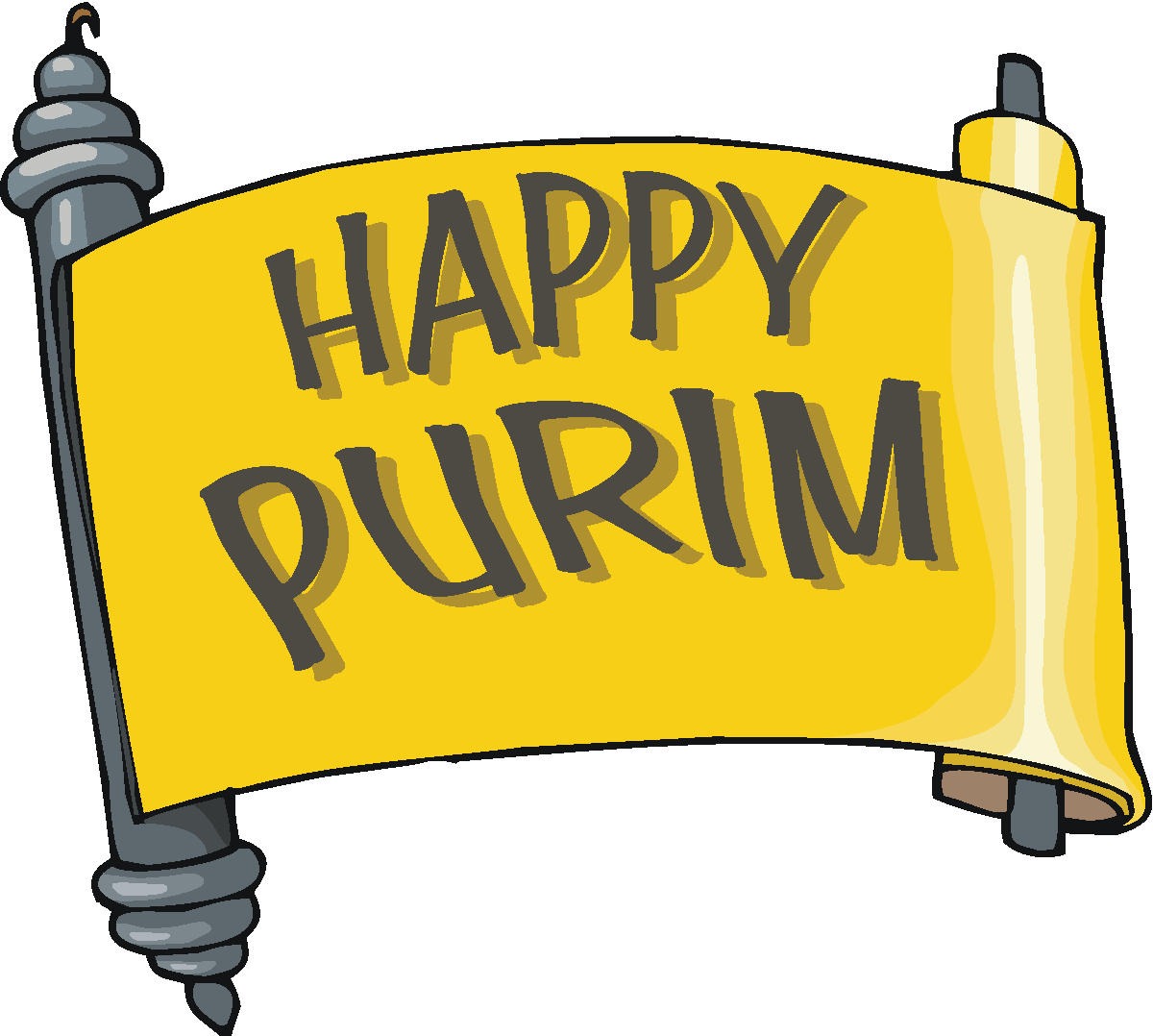 This topic covers Chinuch laws pertaining to the observance of Purim.
This topic covers Chinuch laws pertaining to the observance of Purim.
A. MITZVOS BEFORE PURIM
1. There are three mitzvos that apply in the days before Purim, and
they are:
a) Parashas Zachor
b) Machatzis HaShekel
c) Fast of Esther
B. PARASHAS ZACHOR
 1. There is a positive Torah mitzvah to annually read the Torah portion pertaining to the eradication of Amalek’s descendants. [2]
1. There is a positive Torah mitzvah to annually read the Torah portion pertaining to the eradication of Amalek’s descendants. [2]
2. This reading takes place on the Shabbos before Purim. But according to [4] which cites Minchas Chinuch, the Torah obligation of reading Parashas Zachor is not limited to Shabbos, and this requirement may be fulfilled any time. [2]
3. Parents are obligated to take their sons of chinuch age (6-7 yo and older) to shul to listen to this Torah reading. [2]
4. Even though some women have the custom of attending this reading as well, girls of chinuch age are not required to listen to the reading. [2] According to [4] which cites Sefer HaCHinuch, women are exempt from both aspects of the mitzvah, i.e. recalling Amalek’s actions by listening to Parashas Zachor and participating in the war. Similarly, in [4], Minchas HaChinuch, et. al, disagree and obligates women to listen to Parashas Zachor.
[ Moderator’s note: You should follow your Rav on this one. ]
C. MACHATZIS HASHEKEL
1. On the eve of Purim (the Fast of Esther), preferably before mincha, it is customary to donate three half-shekels to charity, to commemorate the mitzvah of Machatzis HaShekel, the annual half-shekel that was donated to the Beis HaMikdash for the purchase of communal sacrifices.
2. The value of a half-shekel is half the standard denomination in the country of residence. E.g. in the US, it would be a half dollar.
3. Some authorities exempt women from this custom, while others obligate them. A pregnant woman makes the donation on behalf of her unborn child. [4]
4. Some authorities rule that this obligation begins at the age of twenty, others rule that it begins when the child becomes bar mitzvah. Nevertheless, it is customary to contribute 3 half-shekels on behalf of each male member of the family, regardless of age. Some have the custom of giving machatzis hashekel for females too. [2]
5. If 3 half-shekels are beyond one’s means, one should contribute at least 1 half-shekel on behalf of each family member. One who cannot afford even that amount should make a small donation on behalf of each member of his family. [2]
6. Once the father begins to give the machatzis shekel on behalf of his male children, he must continue to do so, as this is a binding vow. [1],[2]
D. TAANIS ESTER (FAST OF ESTHER)
1. I have not found anything on this from the references, so I consulted our Halachic Advisor, Rabbi Aaron Tendler. He is of the opinion that on a fast day, it is recommended not to give the children treats. Even though Mishna Berura states that minors should only be given simple food, i.e. normal everyday food, he says that there is no obligation to do so. The point is to not give them treats, unless there are extenuating circumstances.
E. MITZVOS OF PURIM
1. The 4 mitzvos obligatory on each individual on Purim are:
a) Krias HaMegillah (Reading the Megillah)
b) Mishloach Manos (Sending portions of food to another person)
c) Matanos La’Ev’yonim (Giving gifts to the poor)
d) Seudah (Eating a festive meal)
F. KRIAS HAMEGILLAH (Reading The Megillah)
1. There is a positive Rabbinic mitzvah for men and women to listen to the reading of Megillah Ester, twice during Purim – once at night and once during the day.
2. Boys and girls who are mature enough to listen to the entire Megillah reading are obligated to do so, under the law of Chinuch. [2]
3. Young children who might distract others from listening should not be brought to the Megillah reading. If one family member must remain at home (e.g. to watch the infant), it is preferable that boys of chinuch age attend the Megillah reading, even if this causes an adult female (e.g. mother or older sister) to stay home and listen to the Megillah afterwards in a private reading. [2]
4. A minor cannot read the Megillah on behalf of an adult, however, if the only qualified reader available is a minor who has reached the age of chinuch, he can read the Megilla on the adult’s behalf. [2]
G. MISHLOACH MANOS (Sending Portions of Food to Another Person) 
1. Every man and woman is obligated to send a gift consisting of 2 types of food to a Jewish acquantaince on Purim. Children of chinuch age (5 or 6 yo and older) should be provided with 2 types of food to give to a (Jewish) friend so they can fulfill this mitzvah. [2]
H. MATANOS LA’EV’YONIM (Sending Gifts to the Poor)
1. Every man and woman is obligated to give food or money to the (Jewish) poor on Purim.
2. The requirement is to give to at least 2 poor people enough food or money equivalent to a minimal Purim meal.
3. Parents should train children of chinuch age to fulfill this mitzvah.
I. SEUDAH (Eating a Festive Meal)
1. Every person is required to eat a festive Purim meal to celebrate the miracle of Purim. Children of chinuch age (5 or 6 yo and older) must also partake of this meal.
REFERENCES:
[1] A Parent’s Guide to Teaching Children Mitzvot by Rabbi Shmuel Singer [2] Children In Halachah by Rabbi Simcha Bunim Cohen [3] Kitzur Shulchan Aruch, by Rabbi Avrohom Davis [4] Halichos bas Yisrael, by Rabbi Yitzhak Yaakov Fuchs


